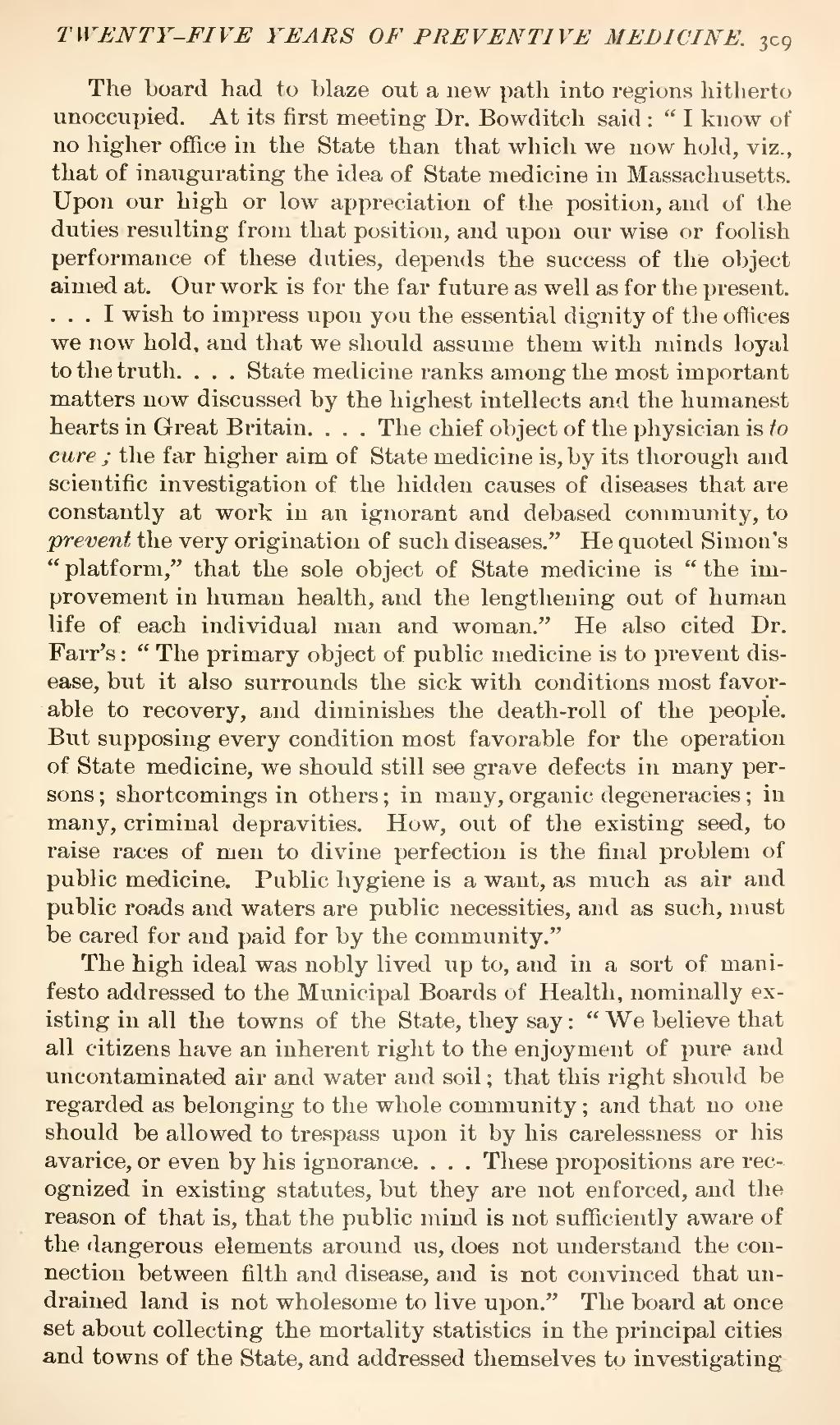The board had to blaze out a new path into regions hitherto unoccupied. At its first meeting Dr. Bowditch said: "I know of no higher office in the State than that which we now hold, viz., that of inaugurating the idea of State medicine in Massachusetts, Upon our high or low appreciation of the position, and of the duties resulting from that position, and upon our wise or foolish performance of these duties, depends the success of the object aimed at. Our work is for the far future as well as for the present. . . . I wish to impress upon you the essential dignity of the offices we now hold, and that we should assume them with minds loyal to the truth. . . . State medicine ranks among the most important matters now discussed by the highest intellects and the humanest hearts in Great Britain. . . . The chief object of the physician is to cure; the far higher aim of State medicine is, by its thorough and scientific investigation of the hidden causes of diseases that are constantly at work in an ignorant and debased community, to prevent the very origination of such diseases." He quoted Simon's "platform," that the sole object of State medicine is "the improvement in human health, and the lengthening out of human life of each individual man and woman." He also cited Dr. Farr's: "The primary object of public medicine is to prevent disease, but it also surrounds the sick with conditions most favorable to recovery, and diminishes the death-roll of the people. But supposing every condition most favorable for the operation of State medicine, we should still see grave defects in many persons; shortcomings in others; in many, organic degeneracies; in many, criminal depravities. How, out of the existing seed, to raise races of men to divine perfection is the final problem of public medicine. Public hygiene is a want, as much as air and public roads and waters are public necessities, and as such, must be cared for and paid for by the community."
The high ideal was nobly lived up to, and in a sort of manifesto addressed to the Municipal Boards of Health, nominally existing in all the towns of the State, they say: "We believe that all citizens have an inherent right to the enjoyment of pure and uncontaminated air and water and soil; that this right should be regarded as belonging to the whole community; and that no one should be allowed to trespass upon it by his carelessness or his avarice, or even by his ignorance. . . . These propositions are recognized in existing statutes, but they are not enforced, and the reason of that is, that the public mind is not sufficiently aware of the dangerous elements around us, does not understand the connection between filth and disease, and is not convinced that undrained land is not wholesome to live upon." The board at once set about collecting the mortality statistics in the principal cities and towns of the State, and addressed themselves to investigating

